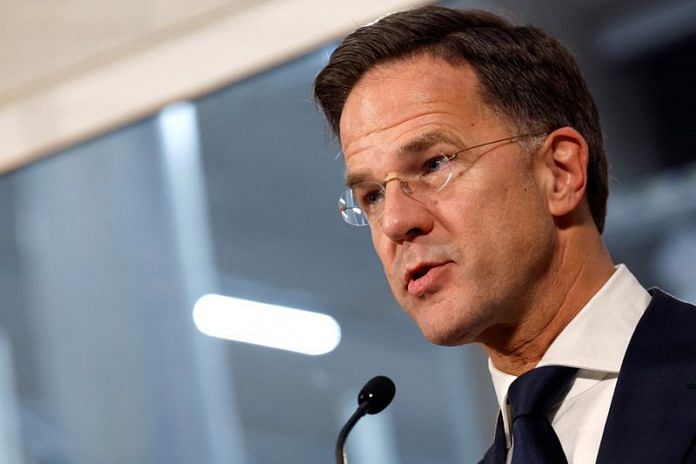AMSTERDAM (Reuters) – Dutch Prime Minister Mark Rutte’s government faced a no-confidence vote on Wednesday over plans to cut nitrogen emissions on farms, three weeks after being beaten in provincial elections by a farmers’ protest party opposed to such cuts.
Rutte’s centre-right coalition is expected to survive the vote as its four parties together hold a slim majority in the 150-seat parliament, but the opposition’s move underlines the government’s vulnerability following the elections.
Opposition parties said during Wednesday’s parliamentary debate that the Rutte government had failed to offer any convincing policies to tackle nitrogen emissions as well as other issues such as high inflation and immigration.
“Put the country’s interest first and quit today,” said Geert Wilders, leader of the far-right Freedom Party (PVV).
The opposition parties are expected to propose the no- confidence vote later in the day.
The nitrogen crisis took centre-stage in the debate as it has crippled construction in the Netherlands, the euro zone’s fifth largest economy.
Nitrogen oxides in the Dutch soil and water are much higher than European Union rules allow due to relatively high numbers of livestock and a heavy use of fertilizer that has made the small country one of the world’s major agricultural exporters.
Environmental groups have won a string of court cases since 2019 ordering the government to limit nitrogen emissions and preserve nature before new building permits can be granted.
The government aims to halve nitrogen emissions by 2030 but it has so far been unable to decide how to do so as farmers have staged massive protests against plans they said threatened their livelihoods and were unfairly balanced against them.
In a big shock for the Netherlands’ political landscape, the farmers’ protest party BBB (BoerBurgerBeweging – Farmer Citizen Movement) emerged as the clear winner of the provincial elections on March 15. Those results determine the make-up of the Senate, the Dutch upper house of parliament.
Rutte’s government, serving its fourth consecutive term since 2010, has seen its approval rating drop to 20%, its lowest in a decade.
(Reporting by Bart Meijer; Editing by Gareth Jones)
Disclaimer: This report is auto generated from the Reuters news service. ThePrint holds no responsibilty for its content.



